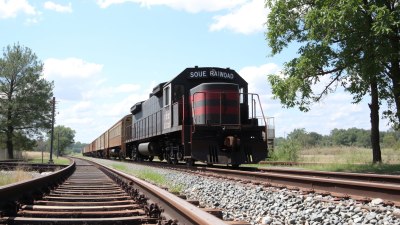How to Pack Light While Still Being Prepared for a Camping Adventure
Learn essential tips for packing light while ensuring you have everything for a successful camping trip.

Packing for a camping adventure can be both exciting and daunting. The freedom of the great outdoors invites adventure, but the challenge comes in deciding what to bring without overloading your backpack. How can you balance the need for essential gear against the desire to travel light? This guide aims to provide practical strategies for minimizing your load while maximizing your preparedness. We'll delve into gear selection, clothing choices, food planning, and techniques to keep your pack light yet efficient.
Understanding the Basics of Lightweight Packing
Before you start packing, it's crucial to understand the philosophy behind lightweight camping. The main goal is to reduce the weight and bulk of your packing without sacrificing essentials. The first step is to choose the right bag. Look for a lightweight, durable backpack specifically designed for camping. An ideal pack will have a comfortable fit, ample space for your gear, and compartments for organization.
Next, consider what type of camping you're doing. Are you backpacking into the wilderness, or car camping at a designated campground? Backpacking requires more careful selection of items since you’ll be carrying everything on your back for extended periods. Conversely, car camping allows for more flexibility in bringing additional gear since your vehicle can hold more weight.
Choosing the Right Gear
When selecting gear, prioritize multi-functional items. For example, a sleeping bag that also doubles as a blanket will save space and weight. Look for compact versions of essential tools, such as a small, lightweight cooking pot that fits neatly inside a larger pot or collapsible cookware that takes up minimal space. Each item should have a purpose; avoid bringing gear that you might only use once or that serves no essential function.
Another aspect to consider is the material flow of your equipment. Opt for ultralight equipment made from materials like titanium for cookware or ripstop nylon for tents. High-efficiency stoves that run on minimal fuel are ideal, as they provide quick cooking times and help reduce load.
Camping Kitchen Essentials
The kitchen is often where weight starts to accumulate. Stick to the basics. A portable camp stove, if chosen wisely, can be lightweight and still effective. Ditch bulky pots; instead, consider a nesting cookware set and pack them together for space efficiency. Only pack the cooking utensils you know you’ll need, like a spork or a multi-tool that includes a blade and can opener.
For food, planning is key. Opt for dehydrated or freeze-dried meals as they are lightweight and only require boiling water. Bring foods that are high in calories and nutrients, like nuts or energy bars, for snacking while hiking. If you enjoy cooking at the campsite, consider easy-to-cook meals that don’t require a long list of extra ingredients.
Clothing Choices
Clothing is another area where you can easily become weighed down. Adopting a layering strategy is crucial for staying comfortable without overpacking. Start with a moisture-wicking base layer, add an insulating mid-layer, and finish with a weather-resistant outer layer. Choose quick-drying, breathable fabrics that can handle various weather conditions without taking up too much room in your bag.
When it comes to footwear, select a pair that is versatile and comfortable for both hiking and casual wear. You might also want to bring lighter footwear for around the campsite. A good rule of thumb is to pack no more than three pairs of footwear: hiking shoes/boots, camp shoes/sandals, and perhaps a pair of water shoes if there's a chance you'll be near water.
Personal Items and First Aid
While personal items like toiletries are often essential, keep them minimal. Carry a small, travel-size hygiene kit that includes your necessary items. Consider swapping traditional bar soaps for multi-use products that can double as shampoo or body wash.
A first aid kit is vital for any camping trip. However, many people overpack with too many items. A compact first aid kit that includes band-aids, antiseptic wipes, pain relievers, and any personal medications is all you really need. Remember to check it before every trip to ensure that the supplies are current and not expired.
Utilizing Pack Organization Techniques
Proper organization can significantly enhance accessibility without adding weight. Use packing cubes or stuff sacks to segment your gear, enabling easier retrieval while on the move. A top-loading backpack can also allow you to access your gear from the top without the need to remove all items each time.
One effective packing technique involves placing heavier items towards the bottom of your backpack and lighter items towards the top. This strategy helps with balance while hiking and makes maneuverability easier. Always put frequently used items, like water bottles and snacks, in side pockets for quick access.
Food Planning for Your Trip
Pre-planning your meals is crucial not only for nutrition but also for managing your weight load. Aim for meals that are simple to prepare, require few ingredients, and can easily be packed. Look for recipes that allow you to cook in one pot or use minimal cookware.
If hiking for multiple days, consider meal planning that includes breakfasts like oatmeal packets and dinners that can be made from dehydrated foods. For lunches, pack foods that are energy-dense and easy to carry, like trail mix or jerky. Keep the food storage methods as compact as possible, utilizing resealable bags rather than boxes or bulky containers.
Stay Flexible and Adaptable
Finally, while it’s essential to pack smart and light, it's equally important to remain flexible. Consider the option of rearranging your plans based on the weather or your energy levels. If conditions change, you can reevaluate and always use your earlier packing strategies afterward to keep the journey manageable.
Packing light while being prepared for a camping adventure is an achievable goal, emphasizing the importance of smart gear selection, meal planning, and packing techniques. With thoughtful consideration and strategic choices, embarking on your camping journey can be rewarding and unforgettable. Remember that the essence of camping is exploration and connection with nature, not burdening yourself with unnecessary gear. Happy camping!











